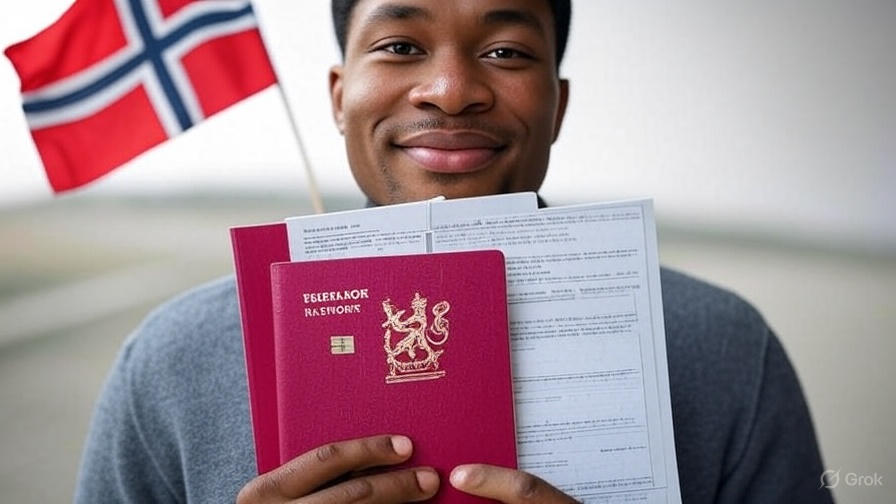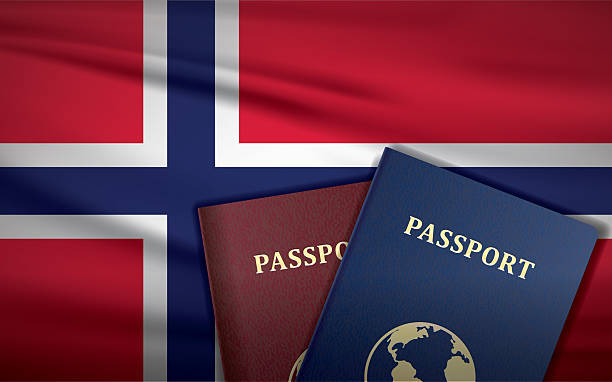Introduction – Why Understanding This Matters
When I first thought about applying for permanent residence in Norway, I felt completely overwhelmed. There were forms, new rules, language tests, income proofs… honestly, it all seemed like a maze. And I soon realized I wasn’t alone. Many non-EU residents get tripped up because they assume things are automatic—or they don’t know the latest updates.
The truth is, the rules for permanent residence in Norway have changed, and now more than ever, careful preparation is essential. If you get it right, you can secure the ability to live and work indefinitely, access social benefits, and eventually qualify for citizenship.
I’ve guided friends, clients, and fellow expats through this process, learning firsthand what works and what trips people up. In this guide, I’ll share step-by-step advice, case studies, and practical tips, so you can navigate the process smoothly without unnecessary delays.
By the end of this article, you’ll know:
-
Who qualifies under the new rules
-
How to plan your stay and gather documents
-
Common mistakes to avoid
-
Insider tips that aren’t in official brochures
What Is Permanent Residence in Norway?
Permanent residence—or “permanent oppholdstillatelse”—is not citizenship. But it gives you a stable legal footing: you can stay indefinitely, work without restriction, and access healthcare and social services.
Benefits of permanent residence include:
-
Freedom to live and work in Norway without renewing temporary permits
-
Easier travel across Schengen countries
-
Eligibility for citizenship after usually eight years of legal residence
For those preparing to move or extend their stay, Pytheas offers services for immigration guidance and settling-in support.
Rules for Permanent Residence in Norway
1. Minimum Years of Legal Residence
-
Non-EU/EEA citizens: Must have resided in Norway on a qualifying temporary residence permit for 3 to 5 continuous years.
Real-life example: Ahmed from Pakistan studied in Trondheim for four years, but only half of that counted toward permanent residence. He had to stay two more years on a work permit to meet the 5-year requirement.
2. Income & Financial Independence
Applicants must show stable income above a defined threshold (linked to the Norwegian National Insurance G amount). Receiving welfare benefits close to application time can disqualify you.
-
Tip: Keep payslips, employment contracts, and tax records organized.
3. Language & Social Studies
-
General requirements for applicants aged 18 to 67. Exemptions may apply.
-
Have passed an oral Norwegian language test at A2 level or higher
-
Have passed a social studies test in a language you understand
-
Maria from Canada failed the Norwegian language test on her first try, but after practicing conversational skills for six months, she passed on her second attempt.
4. Clean Criminal Record
Even minor offenses can affect eligibility. The UDI carefully checks police records.
5. Special Cases
-
Refugees or protection holders: Additional documentation required
-
Family immigration: You must show stable, ongoing relationships
Step-by-Step Guide: How to Apply
-
Check your eligibility
-
Count your residence years carefully
-
Verify your income and work history
-
-
Complete language and social studies
-
Enroll early and gather certificates
-
Don’t wait until the last minute
-
-
Gather documents
-
Passport
-
Residence permit history
-
Payslips
-
Language and social studies certificates
-
Police clearance
-
-
Apply online via UDI
-
Pay Application fee
-
Attend appointment
-
Submit originals at police/service center
-
-
Wait for processing
-
Can be long processing time if the police refer the application to the UDI
-
Be ready for additional document requests
-
-
Receive residence card
Pro tip: Keep all copies organized in a folder or digital drive. UDI requests are strict about originals and verifications.
Common Mistakes to Avoid
-
Relying on welfare close to application time
-
Skipping Norwegian classes
-
Forgetting documentation like pay slips
-
staying abroad for extended periods
Real-Life Case Studies
Case 1: Maria from Canada – Language Challenge
Martin worked as an engineer in Stavanger. She had 3 years of residence and a stable income but underestimated the language test. After extra tutoring and practicing conversational Norwegian, he passed and now enjoys permanent residence.
Case 2: Sergei from Russia – Time Spent Outside of Norway
Sergei worked in Norway for an international company but spent extended periods abroad on assignments. While his employment remained with the Norwegian branch, not all the time he spent outside Norway counted toward his residence requirement. As a result, he needed to stay longer in Norway before qualifying to apply.
Case 3: Salina from India – Family Immigration
Salina initially moved with her spouse, who held a skilled worker visa. She assumed her residence would be automatic through marriage, but it wasn’t. Over five years, she completed all the necessary requirements and successfully obtained her residence permit.
These stories show that planning ahead is key.
FAQ: Rules for Permanent Residence
2. Are Norwegian Language Classes Mandatory?
Yes, most applicants must pass an oral Norwegian language test at A2 level or higher.
3. Does my income matter?
Yes. You must be self-sufficient, with proof of income above minimum thresholds.
4. Can criminal records affect approval?
Yes. Even minor offenses may delay or block your application.
5. How long is the permanent residence card valid?
It must normally be renewed every two years.
6. How Long Can I Spend Outside of Norway Once Obtaining Permanent Residency?
You should avoid spending extended periods outside Norway, as it may affect your permanent residency status. Generally, long absences can jeopardize your rights, so it’s important to maintain Norway as your main place of residence and keep track of any time spent abroad.
Summary – What You Need to Remember
The rules for permanent residence in Norway emphasize:
-
Financial stability – no reliance on welfare close to application
-
Continuous legal stay – track residence years carefully
By planning ahead, taking language classes early, and keeping your documentation organized, you’ll make the process smoother. Real-life examples show that preparation and persistence pay off.
At Pytheas, we’ve helped countless individuals navigate these rules, secure permanent residence, and settle successfully. If you’re ready, reach out today for expert guidance and support.








